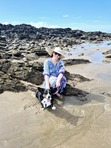Theresa Smith's Blog, page 50
August 11, 2021
Book Review: Still Life by Sarah Winman
1944, in the ruined wine cellar of a Tuscan villa, as bombs fall around them, two strangers meet and share an extraordinary evening.
Ulysses Temper is a young British soldier, Evelyn Skinner is a sexagenarian art historian and possible spy. She has come to Italy to salvage paintings from the wreckage and relive memories of the time she encountered EM Forster and had her heart stolen by an Italian maid in a particular Florentine room with a view.
Evelyn’s talk of truth and beauty plants a seed in Ulysses’ mind that will shape the trajectory of his life – and of those who love him – for the next four decades.
Moving from the Tuscan Hills and piazzas of Florence, to the smog of London’s East End, Still Life is a sweeping, joyful novel about beauty, love, family and fate.
Published by HarperCollins Publishers Australia – 4th Estate GB
Released 2nd June 2021
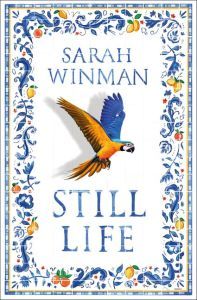 My Thoughts:
My Thoughts:‘There are moments in life, so monumental and still, that the memory can never be retrieved without a catch to the throat or an interruption to the beat of the heart. Can never be retrieved without the rumbling disquiet of how close that moment came to not having happened at all.’
Readers, please meet my new favourite book. This novel. I love it when this happens, when you know, right from the first page, that you are reading something rare and wonderful and completely perfect for you. That’s what Still Life is for me. Note that I said is, not was, because I don’t think this novel could ever be past tense for me. There is so much love, human connection, and appreciation for art and literature on every page of this novel. It’s absolutely filled to the brim with philosophy about life, art, literature, morality, sensibility, and how all these things give meaning to our existence and connect us to each other. There’s also a wonderful play on six degrees of separation throughout, with so many people connecting back to Evelyn – even famous literary figures. And it’s funny. And beautiful. And it has this amazing South American Macaw named Claude in it who is the most brilliant character you could ever meet. The things he says! He is so funny. If only I could teach Mordy, my own parrot, to speak like Claude.
‘The power of still life lies precisely in this triviality. Because it is a world of reliability. Of mutuality between objects that are there, and people who are not. Paused time in ghostly absence.’
Still Life is a love letter to Florence. Which really suited me just fine because Florence is the city of my dreams, the one I want to one day wander through. The Florence of Still Life is a character itself, bubbling with atmosphere and continually pressing me to drink wine, eat pasta, and sip espresso. Outdoors of course. The novel is imbued with Florentine history and culture, from the 1970s back through the ages, seen and retold through the eyes of people who have made it their home. The narrative has a conversational feel to it, it’s very intimate in style. The lack of quotation marks enhanced this novel greatly, I felt, aiding in that intimacy and giving the reader a sense of being a part of it all. The characters were all just brilliant. Both clashing and cohesive, the dynamics between them all reached out of the page and drew me in. There is passion in this novel but there is also love, deep and devoted non-romantic love between people who are not related, but rather, choose each other as family. I loved this about Still Life the most: the relationships that brought such an eclectic mix of people together to live under the one roof in a distant land.
‘And it was this she would remember: His voice resonant in the stillness. People listening to him, not laughing. She stood up, marched over to him and held his hand. Her exquisite moment of ownership. The day when he became hers.’
As is the way, the ones you love the most are the hardest to review. I think it’s because the objectivity is lost. You love it, and that’s all there is to it, so other people should too – and they should brace themselves if they don’t (just joking…sort of). I do think this novel has so much to offer to those who love literary historical fiction, particularly sweeping sagas that weave the history of a place firmly into its narrative. And if you love Italy, then this is definitely a novel to add to your shelf. While the world we currently live in prevents me from wandering the streets of Florence, I am grateful to Sarah Winman for giving us Still Life. The next best thing.
‘So, time heals. Mostly. Sometimes carelessly. And in unsuspecting moments, the pain catches and reminds one of all that’s been missing. The fulcrum of what might have been. But then it passes. Winter moves into spring and swallows return. The proximity of new skin returns to the sheets. Beauty does what is required. Jobs fulfil and conversations inspire. Loneliness becomes a mere Sunday. Scattered clothes. Empty bowls. Rotting fruit. Passing time. But still life in all its beauty and complexity.’





Thanks to the publisher for providing me with a review copy.
August 9, 2021
Book Review: Winter in Sokcho by Elisa Shua Dusapin (trans. Aneesa Abbas Higgins)
Winner of the Prix Robert Walser — a beautiful, unexpected novel from a debut French-Korean author.
It’s winter in Sokcho, a tourist town on the border between South and North Korea. The cold slows everything down. Bodies are red and raw, the fish turn venomous, beyond the beach guns point out from the North’s watchtowers. A young French-Korean woman works as a receptionist in a tired guesthouse. One evening, an unexpected guest arrives: a French cartoonist determined to find inspiration in this desolate landscape. The two form an uneasy relationship. When she agrees to accompany him on trips to discover an ‘authentic’ Korea, they visit snowy mountaintops and dramatic waterfalls, and cross into North Korea. But he takes no interest in the Sokcho she knows — the gaudy neon lights, the scars of war, the fish market where her mother works. As she’s pulled into his vision and taken in by his drawings, she strikes upon a way to finally be seen.
An exquisitely crafted debut, Winter in Sokcho is a novel about shared identities and divided selves, vision and blindness, intimacy and alienation. Elisa Shua Dusapin’s voice is distinctive and unmistakable.
Published by Scribe
Released 1st July 2021
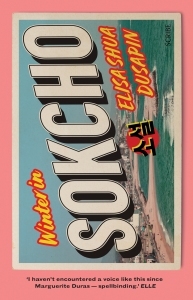 My Thoughts:
My Thoughts:This was quite an arresting little novel. I’ve never read anything set in Korea before, and I must admit, my knowledge on the specifics of the divide between South Korea and North Korea was pretty sketchy prior to reading this. I was really surprised to discover that it is a stretch of no mans land, the most heavily guarded and militarised border in the world. There is a startling moment in the novel when the main character speaks of a woman who was shot while swimming because she unknowingly strayed into North Korea. That just beggars belief, and yet, it is the way of life for those who live along the border, such is the case for the characters in this novel, who live in Sokcho, a South Korean coastal town that survives on tourism in the summer and seafood all year round. When we join them though, it is deep into winter, as cold as minus twenty-seven degrees (Fahrenheit or Celsius, that is still profoundly cold). It’s not only the beaches that attract the tourists, but the border itself, in a macabre way that repels the locals as much as it interests the tourists.
‘Our beaches are still waiting for the end of a war that’s been going on for so long people have stopped believing it’s real. They build hotels, put up neon signs, but it’s all fake, we’re on a knife-edge, it could all give way any moment. We’re living in limbo. In a winter that never ends.’
Reading this novel was a cultural experience and I was keenly interested to observe how much of daily life revolved around food, not necessarily eating, but the preparation of it; there was almost an air of ceremony about it. Octopus, followed by fish, seemed to be the most common ingredient to base meals upon. The main character’s mother was a fishmonger, but she was particularly skilled in the preparation and artistic presentation of blowfish, which apparently has highly toxic organs. If any of these toxins leak into the flesh and are consumed, it can be fatal, so the preparation of blowfish indeed requires a highly skilled fishmonger. Of course, there was more to this novel than fish and food, but I was very interested in all of this, the way in which these details conveyed the culture and weighed in on the South Korean way of life. Food is so often one of the primary cultural aspects that define and differentiate societies from one another, and I do really love it when an author can convey this with so much authenticity.
Our main character – and we never learn her name – is full of self-doubt. She binge eats when she’s around her mother and loathes herself for doing so. Her mother adores her and clings to her, yet caustically makes suggestions about her appearance: eat more because you are too skinny; watch your weight or you will never get married; you should get plastic surgery to help you find a husband. Our main character feels loyalty and a great sense of obligation towards her mother, feels as though she can’t move away because that would mean abandoning her mother (she is an only child and there is no husband/father), and yet, she is repelled by her mother’s neediness for her. Her boyfriend isn’t much better, obsessed with himself and his potential modelling career, suggesting she get plastic surgery, that they get it together as there are special deals for couples who do. The topic of plastic surgery came up more than once and was linked with the idea that those who get plastic surgery are the ones who will ‘make it in Seoul’, and therefore, make it in life. Our main character was particularly resistant to getting surgery, we observe that there is a woman staying at the guesthouse recovering from plastic surgery, hiding away until she is healed so she can re-emerge back in Seoul as a new person. It was terribly sad, the sense of potential happiness that was linked with having surgery done, because ‘who doesn’t need a little improvement’.
I feel like the omission of a name for our main character is quite an important aspect to the story. She is visible only for her usefulness, as an employee, as a daughter, as a niece, as a girlfriend, as a tour guide. These are all roles she plays but none of them define her, encapsulate who she really is and what she dreams of doing with her life. The French cartoonist who checks into the guesthouse for some peace and quiet so he can work on his next book offers her a glimmer of potential. Her father was French, and she majored in French and English Literature at University. She dreams one day of visiting France. The cartoonist, Kerrand, is odd though, abrupt and casually insulting about Sokcho. I like the way in which she wouldn’t let him get away with it, particularly as they got to know one another a little better. She finds herself intrigued by him, as well as attracted to him, yet fails to notice his interest in her, or at least, attributes it to something else, anything other than him liking her as she feels too awkward and unattractive, worried about her glasses, her weight, and a childhood scar on her leg. As the novel is only told from her perspective, we are left to read the signs that indicate his interest, many of which are there, reading between the lines of what she is seeing but not really noticing.
‘I didn’t want to be his eyes on my world. I wanted to be seen. I wanted him to see me with his own eyes. I wanted him to draw me.’
The ending is quite lovely and very open to whatever the reader wants to imagine will happen next. We are assured of one thing though, right at the very end, and it was something that made me smile along with our main character. Is it not what everybody wants at some point in their life? To be seen for who they are through the eyes of someone they admire? This novel is not a long read but it is fulfilling. Elisa Shua Dusapin, French Korean herself, writes beautifully, and the translation by Aneesa Abbas Higgins is very well done. I forgot I was even reading a translation, it was as though the novel had been written in English, which is no small feat because there are actually French words that have no English translation, so hats off to her. Winter in Sokcho is an assured debut from a talented young author that I would be keen to read more from. Absorbing and affecting, recommended for fans of literary fiction.




Thanks to the publisher for the review copy.
August 7, 2021
The Week That Was…
Highlight of my week:
Getting my new front security doors installed. Adulting 2021. Since our homes are the place where we are spending ALL of our time, there is at least pleasure in small home improvements.

~~~
Joke of the week:
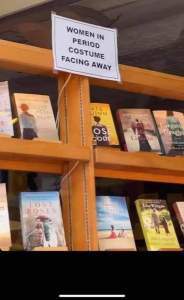
~~~
What I’ve been watching:
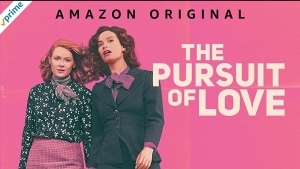
This was glorious. I loved it so much. A three episode series based on The Pursuit of Love by Nancy Mitford. Brilliant TV.
~~~
What I’ve been reading:
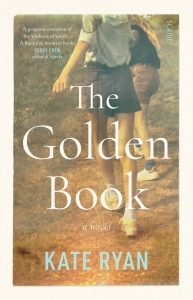

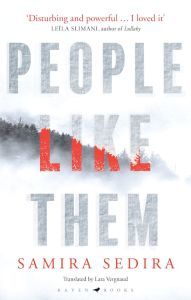
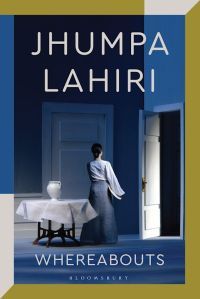
~~~
Until next week… 


August 4, 2021
Book Review: The Golden Book by Kate Ryan
It’s the 1980s, and in their small coastal town, Ali and her best friend, Jessie, are on the cusp. With ‘The Golden Book’, a journal of incantation and risk taking as their record, they begin to chafe at the restrictions put on them by teachers, parents, each other. Then Jessie suffers a devastating accident, and both their lives are forever changed.
When Ali is an adult, with a young daughter herself, the news of Jessie’s death brings back the intensity of that summer, forcing her to reckon with her own role in what happened to Jessie so many years ago.
As this stunning debut moves back and forth in time, and Ali’s secrets are forced into the light, Kate Ryan asks profound questions about responsibility and blame, and, ultimately, about love.
Published by Scribe
Released 3rd August 2021
 My Thoughts:
My Thoughts:The cover of this novel fills me with such a sense of nostalgia. It reminds me of those square Kodak prints from the late 1970s and early 1980s, the way they would fade to a certain coloured sepia, always a little out of focus. I really enjoy Australian fiction set in the 1970s and 1980s. It was an entirely different time, the childhood of the unsupervised, I like to call it. And you didn’t need to have neglectful parents to earn these freedoms, they just existed. It was the way it was. I have friends in my age bracket from all walks of life, but we consistently have this in common. The Golden Book unfolds within this context, the unsupervised 1980s childhood, within the friendship of Ali and Jessie. When I think back to my childhood and catalogue the things I did without my parent’s knowledge, I balk at the thought of my own children having done the same. How I didn’t end up seriously injured – or worse – is unknown; I certainly put myself into plenty of situations where this could have happened. In The Golden Book, we see the darker side to this free-spirited childhood. We see what happens when something goes wrong.
The Golden Book is so named after a notebook created by Ali and Jessie, where they write their dares and quests. The book itself is quite pivotal within the story as we come to realise. Jessie is the daredevil of this friendship, fearless and reckless, a dangerous combination. She also has a significant learning disability that impacts on her behaviour – she can’t read – and I suspected there was some other delayed social skills going on there as well. As the girls got older, some of Jessie’s behaviour was bizarre, alienating her from even Ali, who could feel herself growing up and growing away from Jessie. Within their relationship, Jessie has the power in terms of the way in which she would pressure Ali into doing the things she wanted. Everything had to be on her terms; an attention seeking behavioural by-product of her family environment. As Ali feels the pinch of this more and more, she wields her own power with the pen; she is the only one in the relationship that can read and write, so she is the keeper of The Golden Book. As such, she begins to write things in there, knowing that Jessie can’t read them, about Jessie herself and even members of Jessie’s family.
When I think back to being twelve, thirteen, and even fourteen, I remember keeping a diary, and in essence, that is what The Golden Book becomes for Ali. I wrote some nasty stuff about other people in my diary. That’s what it was for. So, I could relate to Ali doing this. Jessie was frustrating her, bullying her into doing things she didn’t want to do anymore. She was growing away from her but couldn’t disentangle herself from her. So, she took back some of the power imbalance within the relationship. I really didn’t judge her for that. She was twelve. Yet as is the way with life sometimes, the girls relationship was irreparably damaged when Jessie had a terrible accident and from that point on, Ali, traumatised and riddled with guilt and shame, feels the weight of all those words she wrote, even decades later.
This novel is thought provoking, nostalgic, and quietly impactful. It slips between the past and present with ease, but you do need to pay attention, as it’s not structured in the way of alternating chapters or anything so obvious. Sometimes, Ali is taken back mid-scene; we’ll be in the present with her and then in the next sentence, propelled back to the past, and then back again. I didn’t mind this but readers who like clearly marked chapters of then and now may feel some frustration. The themes of trauma, along with the blurring lines of responsibility and blame, are all interwoven tightly throughout the narrative. We see the lasting impacts an accident like this can have on people, not just on Ali, but on Jessie’s family too. I highly recommend this one to those who appreciate literary fiction and to anyone with an interest in childhood trauma and its long-term effects into adulthood. Piercing and profound is how I would sum up The Golden Book.




Thanks to the publisher for the review copy.
August 2, 2021
Book Review: The First Time I Thought I Was Dying by Sarah Walker
A dazzling collection of essays that unpacks our unruly bodies and minds and questions why we are taught to fear and punish them, from an exciting and award-winning new author.
We live in a world that expects us to be constantly in control of ourselves. Our bodies and minds, though, have other ideas.
In this striking debut, artist and writer Sarah Walker wrestles with the awkward spaces where anatomy meets society: body image and Photoshop, phobias and religion, sex scenes and onstage violence, death and grief. Her luminous writing is at once specific and universal as she mines the limits of anxiety, intimacy and control.
Sharp-witted and poignant, this collection of essays explores our unruly bodies and asks how we might learn to embrace our own chaos.
Published by UQP
Released 3rd August 2021
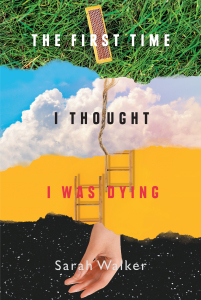 My Thoughts:
My Thoughts:If more people wrote essay collections instead of memoirs, I would read a lot more non-fiction. This was such a good book. I started off reading it with the intention of knocking off one essay over breakfast each day, continuing on everyday until I finished. One turned into two and then three and breakfast just stretched on and on.
‘My friend Luc calls the internalised misogyny that forces women to police their own bodies the ‘self-hatriarchy’. To recognise it is to learn to defy it. A body that acknowledges and delights in its own complexity is hard to market to. To let hair grow, to cease to obsess about the smells produced by the many holes and crevices of the self: this is to become resistant to the power of advertising that grows fat on shame. Between the twin dysfunctions of paranoia and ill health, there is a middle ground, a faith in the power of allowing the body to be bodily, of allowing what is revolting to be a part of what makes us human.’
There were so many moments of insight throughout this book, and so many times something resonated. As a parent of older teenagers, there were particular essays that gave me a point of view into something that I have not been able to get a bead on until now. But my appreciation was not limited to what I could glean as a parent. On a personal level, I found much to contemplate. It was also rather nice to discover that someone else thinks about the things that I do. Dealing with many topics that include grief, self image, self harm, mental illness, family relations, sex, fear, theatre, photography, death, illness, bodily functions, art, and honestly, so much more. Each essay is themed but also covers an array of topics, plus, each one is prefaced with a photo that aligns with the theme at hand – the author is a photographer, so I liked this blending of artistic mediums.
‘The dead never change, but the living do. In every second, we change. That is our burden and our gift.’
The First Time I Thought I Was Dying has wide appeal but is also a challenging read – yet in a good way. In the way that flexes your senses, stretches your mind, and ignites your emotions. One might go so far as to say that the collection as a whole is its own work of art. A stunning debut that I highly recommend.




Thanks to the publisher for providing me with a review copy.
August 1, 2021
A Month of Reading: July
Books read in July: 9 (same as last month!)
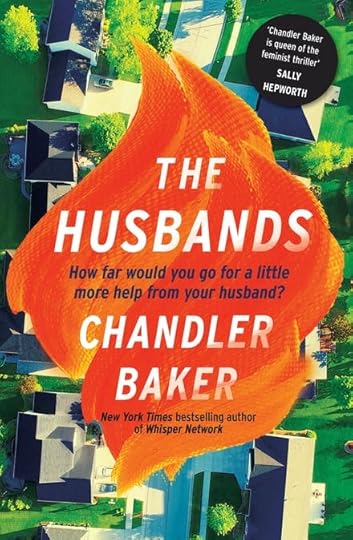
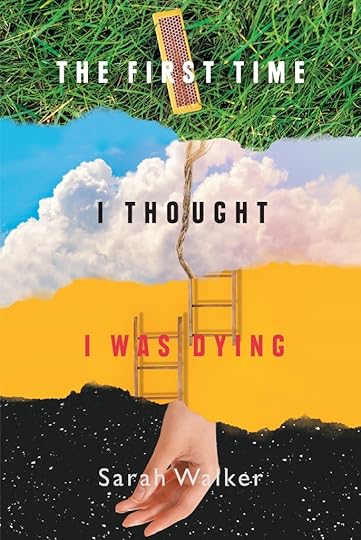
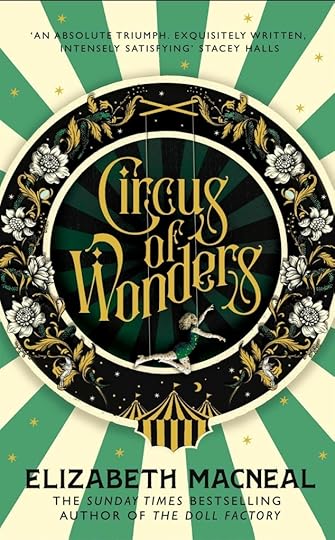
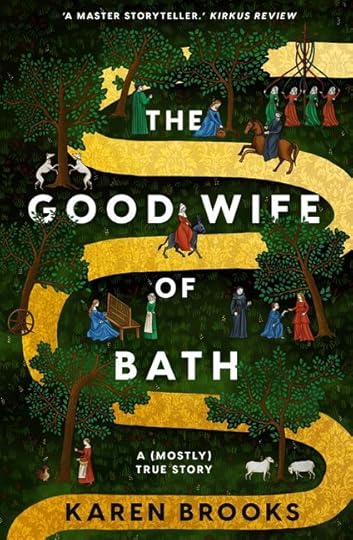
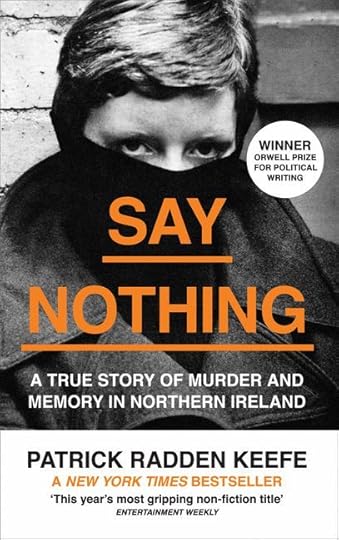
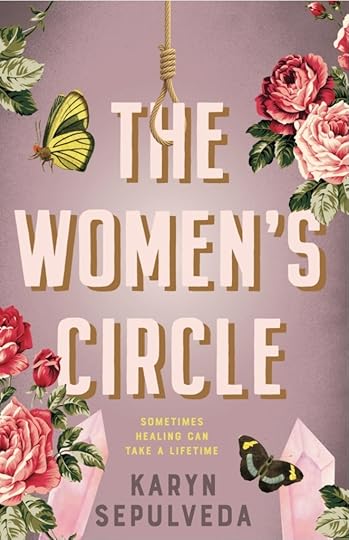
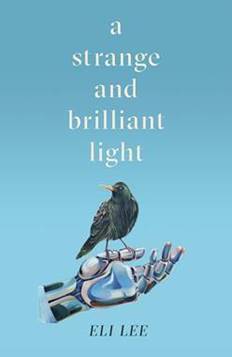
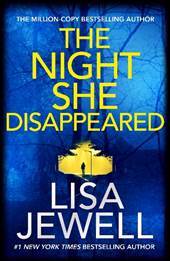
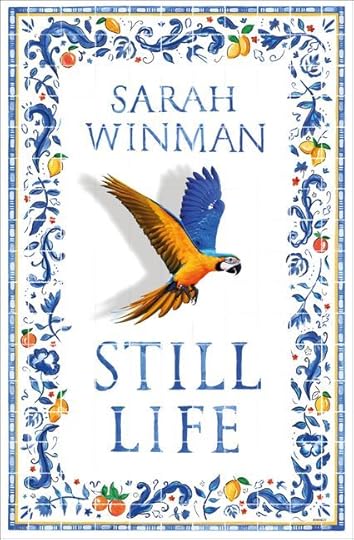
Until next month…
July 30, 2021
The Week That Was…
Life in all its busy glory with a broken wrist (younger son, football) and becoming licensed to drive (oldest son, Ps). Plus, I upgraded my 17 year old dishwasher and I am proud to say I installed it myself! Where there is a will there is a way, I am discovering more and more in this new world of being single that I’ve found myself in.
~~~
Joke of the week:

~~~
I had the pleasure of interviewing Kim Lock (The Other Side of Beautiful) for a Facebook live event for HQ. It was such a lot of fun! Here’s the link if you have a spare 30 minutes and feel like some bookish entertainment. Not even a technology glitch could keep me down… 
~~~
The Booker Longlist:
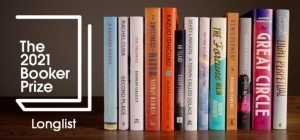
I’ve read one of these, No One Is Talking About This, and it’s not the type of book I deem prize worthy, but apparently it’s not all about me…this list would be very different if it was!
I’d have to look the others up. I’ve heard of Great Circle (was meant to get a review copy but it never showed up) and seen Klara and the Sun reviewed by others I follow. Sometimes these books land on my doorstep after the listing, so by the time the shortlist rolls around, I may know more. Or not!
~~~
What I’ve been watching:
Book to film…this was lovely. I enjoyed The Last Letter to Your Lover when I read it years ago and the film well and truly did it justice.
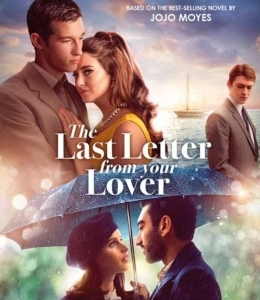
I finished watching this one. It was very good but I was left feeling apalled at the ‘business’ of the American health system. Christian Slater gave a brilliant performance, it really had been too long between drinks with him.

~~~
I watched an excellent Brisbane Writer’s Festival author talk with Avni Doshi (Burnt Sugar) on motherhood and society’s expectations. It was a purchased event, so unfortunately I can’t share the link here. I really do love this digital age of festivals though, it’s widened up the horizons well and truly. Anyway, am certainly thinking of reading Burnt Sugar now.
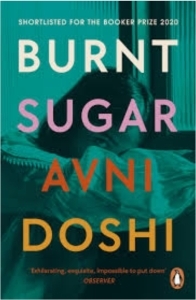
~~~
What I’ve been reading:
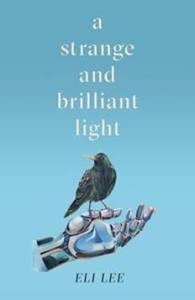
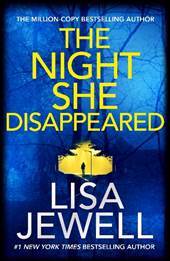

~~~
Until next week… 


July 26, 2021
Blog Tour Book Review: The Night She Disappeared by Lisa Jewell
Midsummer 2017: teenage mum Tallulah heads out on a date, leaving her baby son at home with her mother, Kim.
At 11pm she sends her mum a text message. At 4.30am Kim awakens to discover that Tallulah has not come home
Friends tell her that Tallulah was last seen heading to a pool party at a house in the woods nearby called Dark Place
Tallulah never returns.
2018: walking in the woods behind the boarding school where her boyfriend has just started as a head-teacher, Sophie sees a sign nailed to a fence.
A sign that says: DIG HERE . . .
A cold case. An abandoned mansion. A family hiding a terrible secret.
Prepare to be hooked. Lisa Jewell’s latest thriller is her best yet.
Published by Penguin Random House Australia – Century
Released 20 July 2021
 My Thoughts:
My Thoughts:I wonder sometimes if certain people are more unfortunate than others in the sense that they have personalities that make them more of a magnet for the manipulations of toxic people. It certainly seemed that way for Tallulah, who was just a really lovely young woman, doing her best to juggle motherhood and college, not asking for much at all and completely appreciative of all the help provided to her by her mother and brother, yet she had not one, but two toxic relationships pressing in on her prior to her disappearance.
This is the first book by Lisa Jewell that I’ve read and I found it to be impressive and compelling, so much so, that despite it’s length (465 pages), I read it over one day and late into the night, unable to put it down, that’s how consumed I was with finding out what had actually happened on the night Tallulah disappeared. With it’s complex plotting and strong character development, The Night She Disappeared really is one of the best crime-mystery-thriller novels I’ve read this year. With mounting dread, the story unfolds from multiple perspectives across three different points in time. This story is not only suspenseful, it has deep emotional impact and a strong message about coercive control within relationships, reiterating that domestic violence does not begin and end with physical violence.
I really liked the major players in this novel, Sophie the detective writer who happened upon a clue to the case, Tallulah’s mother Kim, and Tallulah herself. None of the characters were ‘unreliable narrators’ which was utterly refreshing for a crime novel and they were all devoid from clichés. Likewise with the story itself which took the reader on a winding journey that was part domestic suspense, part police procedural crime, part gothic noir, and part psychological thriller. I highly recommend The Night She Disappeared, it was excellent and I’d be hard pressed to name a crime thriller I’ve liked more.





Thanks to the publisher for providing me with a review copy and for inclusion in the blog tour.
July 22, 2021
Book Review: A Strange and Brilliant Light by Eli Lee
A riveting, thought-provoking speculative literary novel exploring the impact of the AI revolution through the eyes of three very different young women.
Lal, Janetta and Rose are living in a time of flux. Technological advance has brought huge financial rewards to those with power, but large swathes of the population are losing their jobs to artificial intelligence, or auts, as they’re called. Unemployment is high, discontent is rife and rumours are swirling. Many feel robbed – not just of their livelihoods, but of their hopes for the future.
Lal is languishing in her role at a coffee shop and feeling overshadowed by her quietly brilliant sister, Janetta, whose Ph.D. is focused on making auts empathetic. Even Rose, Lal’s best friend, has found a sense of purpose in charismatic up-and-coming politician Alek.
When vigilantes break in to the coffee shop and destroy their new coffee-making aut, it sets in motion a chain of events that will pull the three young women in very different directions.
Change is coming – change that will launch humankind into a new era. If Rose, Lal and Janetta can find a way to combine their burgeoning talents, they might just end up setting the course of history.
Published by
Jo Fletcher Books
Released 22nd July 2021
 My Thoughts:
My Thoughts:Like a lot of literary novels, the intent can often lie in the unsaid. Literary speculative fiction is a side bar for me; a genre I read selectively but so far have enjoyed quite a bit. A Strange and Brilliant Light is very much a character driven novel, a slow unfolding that seems at times to flounder yet ends up finishing on a note of significant impact that makes all that came before it all the more complex and far reaching.
Each of the women are realistic and relatable, although I liked Janetta the least and Rose the most. Lal, I was in two minds about. Her situation was difficult; when you’re supporting your family, it’s not so easy to be idealistic. Whist this novel had a futuristic feel, it still also felt contemporary, giving the reader a sense of unease and trepidation. Automation is already in our society – virtual assistants are the first port of call for online customer service help lines within corporations nowadays, as just one example. Many aspects of this novel felt impending, particularly the rapid rate of change and the lack of regard for workers in the face of a burgeoning profit margin.
I enjoyed this but recommended it to those who like literary fiction of the sort where much of the story is given over to character introspection. It’s a thought-provoking novel, one that would make for a good book club discussion.




Thanks to the publisher for providing me with a review copy.
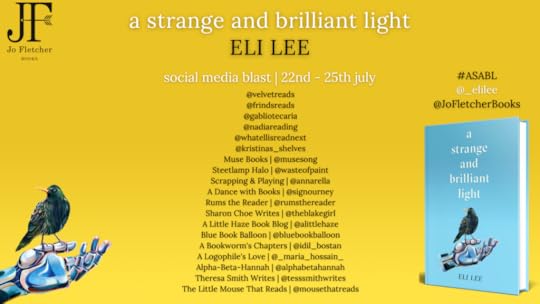
July 21, 2021
Book Review: The Women’s Circle by Karyn Sepulveda
Sydney, present day. Anna is released into the world after eight years in prison. The entirety of her possessions stuffed into a single plastic bag. The trauma of her past, a much heavier burden to carry. Feeling hopeless, isolated and deeply lonely, Anna attends an alternative support group; The Women’s Circle. But when she touches an ancient crystal, Anna connects to a woman she has never met, in a past she doesn’t recognise.
In 1770, a brutal regime torments the English village of Quarrendon and is determined to keep its women apart. Young villager Aisleen desperately seeks a way to defy the rules, reunite with her sister, and live life on her own terms, without her husband’s permission. The stakes are high and terror of punishment inescapable, but doing nothing comes at an even steeper price…
While separated by generations, Anna finds herself drawn to the spine-chilling and courageous plight of Aisleen and Quarrendon’s women. Can their bond help her to face her past and embrace her second chance at life?
A heart-warming and inspirational portrayal of inner strength and vulnerability, The Women’s Circle shows us the true power of female friendship in all its forms.
Published by Ventura Press
Released 7th July 2021
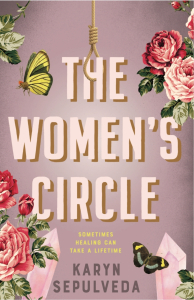 My Thoughts:
My Thoughts:There is a lot to admire about Karyn Sepulveda’s latest release, The Women’s Circle, not least of all the fact that the main character is newly released from prison after serving a sentence for drug related crime. And she’s a recovering ice addict. Not your usual character profile but it immediately drew me in. Because not many novels take the reader on a journey like this, from the moment of exiting prison with a small plastic bag of basics, fear of the society that has moved on without you over the years of your imprisonment, the shadow of your addiction still flickering within you, and no support network whatsoever. There are many stereotypes that exist pertaining to drug addicts and people who have been in prison. Karyn does a carefully considered job within this novel of unpicking those stereotypes and offering us, as readers, the opportunity to challenge our own perceptions.
This novel rests heavily on the theme of female support networks, leaning in and accepting that other people are there for you, they want to be there for you, and they want you to let them support you. The female relationships within this novel go beyond friendship though, they are true support structures and the connections made were done so in a variety of ways, which just goes to show, you never know who is out there ready to lend you a hand when you need it most. Taking this back to Anna, our main character, who was very resistant at first to trusting and relying on people, you see how isolating being released from prison can be, how difficult the adjustment back into society is when you are also battling a history of substance abuse and/or toxic relationships.
There is an historical storyline woven into the narrative that focuses on a village in England in the 1770s that has become isolated from the rest of England and taken over by a brutal patriarchal regime. This storyline was really interesting and I actually would have loved for this to have been given more airtime, particularly as the foundations for this historical story were well developed. I was certainly left pining for more with unanswered questions by the end of this part. The manner in which the two storylines/timelines were connected wanders into the terrain of speculative fiction but its uniqueness sat well within the thematic structure of the novel.
All in all, The Women’s Circle is a moving and thoughtful novel that has wide appeal. Karyn Sepulveda is assuredly asserting herself as a valued presence within the Australian literary scene. Recommended reading.




Thanks to the author for providing me with a review copy.

